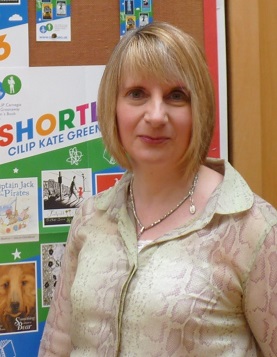 Universities have long complained about the lack of academic independence which many of their new under graduates exhibit. Research into this area has found that many new students struggle to write essays, carry out independent research and build arguments; a lack of skills which leaves them ill equipped for the rigorous academic approach required in higher education.
Universities have long complained about the lack of academic independence which many of their new under graduates exhibit. Research into this area has found that many new students struggle to write essays, carry out independent research and build arguments; a lack of skills which leaves them ill equipped for the rigorous academic approach required in higher education.
Many universities have responded by providing study skill sessions for their new under graduates. The University of Edinburgh for example provides modules on ‘Taking effective notes’, ‘Preparing bibliographies and avoiding plagiarism’ and ‘Using the Library and understanding your reading list’.
At the High School, we take a proactive approach to study and research skills, equipping our students with the skills to make their transition into higher education a smooth one.
Library orientation and research skills such as planning, note taking, bibliographies and plagiarism are embedded within the Humanities curriculum, through History in Year 7 and Geography in Year 8. In Year 8 we are particularly ambitious for the girls, teaching the use of citation, a challenge which most of the girls rise to with aplomb.
In Autumn 2017, Ms Heimfeld and I have introduced a new initiative based around the Reith Lectures. Girls in U4 have the opportunity to practice the skills learnt through Humanities Transferable Skills and linked to the marking criteria of the EPQ, whereby we are interested in the process of completing a piece of work, not just the end product. The aim is for the girls to finish their essay on their chosen subject by Easter, presenting their findings in the summer term.
The EPQ (Extended Project Qualification, worth half an A Level at A2) is one of the elective choices on offer to the girls as they move into the Sixth Form. A response by the examination board AQA to university complaints about student lack of research skills, it allows candidates to choose a topic they wish to explore which isn’t covered in any of their exam subjects or to take a subject of interest beyond the curriculum. Similar to writing a dissertation at university, in that the end product must come out of academic research, but very different in that candidates are credited for the learning journey, not just the end product. The end product may also be an artefact, which can be pretty much anything, from making a film to designing and building a hover board!
Candidates have the opportunity to learn how to work at university level whilst having support within the school environment; the EPQ is proving a popular qualification with our girls.
“I would say that the EPQ has helped me gain skills that will be essential to life at university – and who wouldn’t love those lower university offers! An EPQ is a great asset to your personal statement and makes you stand out at interview”.
Lara Pieczka; Lara completed an artefact for November 2017 submission – The Queen’s Codebreaking Catastrophe: A code breaking workshop for Key Stage 2 pupils.
“The EPQ was an inspirational process for me, the freedom to think, away from the curriculum, allowed me to realise my true interests; it was a deciding factor in my choice of degree for university, clarifying the situation hugely”.
Julia Wardley-Kershaw; Julia completed an artefact for November 2017 submission – The Violet Hue: an exploration into European cinematography.
We look forward to this year’s girls receiving their results in January as the new 6.1 girls begin their EPQ journey.
Mrs Buxton, School Librarian